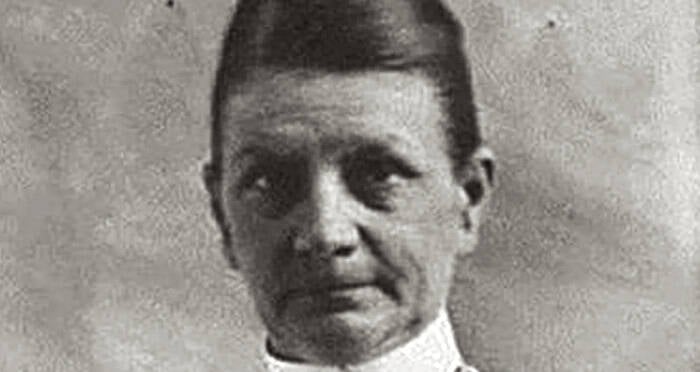The Case of Martha “Mattie” : First Black Woman To Get Electric Chair

Martha “Mattie” was the first Black woman executed by electrocution in the United States. Her case, like many others from that era, was marred by racial prejudice, flawed legal proceedings, and a lack of due process. Her execution, carried out on July 28, 1905, in the state of Virginia, highlights the dark history of racial injustice and the brutal reality of the death penalty in the early 20th century.
The Crime and Conviction
Mattie was convicted of the murder of a white man named John C. “Jack” in 1905. The evidence presented at her trial was circumstantial and highly contested. The prosecution’s case relied heavily on the testimony of a white woman who claimed to have seen Mattie and another Black man near the scene of the crime. However, this testimony was contradicted by other witnesses, and there was no physical evidence linking Mattie to the murder. The defense argued that the prosecution’s case was weak and that Mattie was a victim of racial bias. Despite the lack of substantial evidence, Mattie was found guilty and sentenced to death.
The Legal Proceedings and Execution, First black woman to get electric chair
The legal proceedings surrounding Mattie’s case were deeply flawed. Her defense team was inexperienced and lacked resources, and they were unable to effectively challenge the prosecution’s case. Mattie was denied access to proper legal representation and was ultimately convicted in a racially charged atmosphere. The Virginia Supreme Court upheld the conviction, and Mattie was executed by electrocution on July 28, 1905, at the Virginia State Penitentiary in Richmond. Her execution was a public spectacle, with a large crowd gathered to witness the event.
The Evidence and Arguments
The evidence presented at Mattie’s trial was largely circumstantial. The prosecution’s key witness, a white woman named , claimed to have seen Mattie and another Black man near the scene of the crime. However, her testimony was contradicted by other witnesses, and there was no physical evidence linking Mattie to the murder. The defense argued that the prosecution’s case was weak and that Mattie was a victim of racial bias. They pointed out that the prosecution’s case was based on the testimony of a single witness, who had a history of unreliable statements. The defense also argued that the prosecution’s case was motivated by racial prejudice, as Mattie was a Black woman accused of murdering a white man.
“The evidence against Mattie was circumstantial, and the defense argued that she was a victim of racial bias.”
The Legacy of Mattie’s Case
Mattie’s case is a stark reminder of the systemic racism and injustice that plagued the American justice system in the early 20th century. Her execution was a symbol of the brutality and inhumanity of the death penalty, and it serves as a reminder of the need for ongoing efforts to fight racial bias and ensure equal justice for all. Her story continues to be a powerful testament to the enduring struggle for racial equality in the United States.
Legacy and Impact
/https://tf-cmsv2-smithsonianmag-media.s3.amazonaws.com/filer_public/66/c2/66c261d3-fc91-4e71-9bce-3afbdb0eed7d/gettyimages-97314511.jpg)
Martha “Mattie” execution stands as a stark reminder of the brutal reality of capital punishment in the United States, particularly its intersection with race and social justice. The case serves as a landmark event in the history of the death penalty, highlighting the profound impact of racial bias within the criminal justice system.
The Impact on Public Opinion and the Death Penalty Debate
Martha “Mattie” execution ignited a wave of public outcry and controversy, exposing the deeply rooted racial disparities within the legal system. The case fueled the ongoing debate surrounding the death penalty, with advocates for its abolition citing her case as a prime example of its discriminatory application. The execution brought to light the systemic biases that often lead to disproportionate sentencing and execution of people of color, prompting renewed calls for reform and a re-examination of the death penalty’s fairness and effectiveness.
First black woman to get electric chair – The execution of Virginia Christian in 1910, the first Black woman to be executed by electric chair, serves as a stark reminder of the systemic racism that permeated American justice. It’s a history we must confront, but also a reminder that comfort and support can be found in the present, like the dexley black mesh chair with headrest , offering a respite from the weight of such historical injustices.
The execution of Bartholomew in 1937, the first black woman to face the electric chair, serves as a stark reminder of the injustices woven into the fabric of American history. While the barbarity of this event may seem distant, it’s a stark reminder that even today, the drive for material goods can fuel a frenzy, as seen in the black friday chaos of 2015 , where the pursuit of deals led to violence and chaos.
This unsettling parallel highlights the need for continued vigilance against the normalization of harmful behaviors, whether in the form of state-sanctioned executions or the mob mentality of consumerism.
